Yemen peace talks begin in Sweden
Yemen’s government and rebels, locked in a devastating war for years, traded mutual accusations Thursday as they sat down for hard-won talks the United Nations envoy described as a “critical opportunity.”
The talks in Rimbo, Sweden – a picturesque village some 60 km (35 miles) north of Stockholm – have been months in the making, the first time in two years warring parties sit down together in a nearly four-year war which has pushed the impoverished country to the brink of mass starvation.
While the days leading up to the talks looked promising, with the Saudi-backed government and Houthi rebels agreeing on a prisoner swap deal and the evacuation of wounded insurgents for medical treatment in Oman, ties between the two sides were tense as the talks opened.
Yemeni Foreign Minister Khaled al-Yamani, who heads the government delegation to the U.N.-sponsored talks in Sweden, told AFP his team would follow through with a planned prisoner swap with the Houthi rebels, but refused to compromise on the flashpoint city of Hodeidah, home to Yemen’s most valuable port.
“The Houthi militias must withdraw from the city of Hodeida and its port and hand it over to the legitimate government, and specifically internal security forces,” Yamani said.
Hamid Issam, a member of the delegation of Iran-backed Houthi rebels, dismissed Yamani’s role in the talks altogether.
“We came here with the intention that these talks would succeed,” Issam told AFP.
“But it is not up to Khaled al-Yamani … It is up to Saudi Arabia, the United Arab Emirates and the United States.
“If they could have taken Hodeidah four years ago, they would have. They have not been able to take it, and they will not be able to take it as long as the people of Yemen are fighting.”
‘Critical opportunity’
Hodeidah is on the agenda at the talks, slated to run for one week. Not on the table are negotiations on a solution to the conflict between the government of Abd Rabbo Mansour Hadi, based in southern Yemen, and the northern Houthi rebels, according to U.N. envoy Martin Griffiths.
A Saudi-led military coalition, which includes troops trained by the U.S. and UAE, has for months led an offensive to retake Hodeidah, the last rebel stronghold on Yemen’s Red Sea coast and the conduit for 90 percent of vital food imports.
The move has sparked fears for more than 150,000 civilians trapped in the city as even hospitals were seized by militants.
Saudi Arabia and its allies accuse the rebels of smuggling arms from Iran through Hodeidah, a charge Tehran denies.
More than three years since Saudi Arabia and its allies joined Hadi’s fight against the Houthis, Yemen is now home to what the U.N. calls the world’s worst humanitarian crisis, with 14 million people facing imminent mass starvation amid war as a frail economy crumbles.
Griffiths, who flew to Sana’a to personally escort the rebel delegation to Sweden, said he hoped for small but concrete measures.
“During the coming days we will have a critical opportunity to give momentum to the peace process,” Griffiths told reporters as the rival delegations gathered in Sweden.
“There is a way we can resolve the conflict,” Griffiths said, adding that the Security Council was “united” in its support for a resolution to the conflict.
“Remember these are consultations. We are not yet beginning the process of negotiations.”
‘Humanitarian pipeline’
Griffiths said the U.N. was willing to step in in Hodeidah, an offer the coalition has rejected unless the rebels withdraw completely from Yemen’s western coastline.
“The U.N. is willing if the parties so desire to play a part in the port and city. We’d like to take Hodeidah out of the conflict because … it’s the humanitarian pipeline to the rest of the country,” he said.
“We would like to see that airport open, but it needs to be assessed,” he said. “We’d like to see progress on this.”
The head of the Houthis’ political council, Mohammed Ali Houthi, threatened Thursday to bar U.N. planes from using the Yemeni capital’s airport unless the talks led to its full reopening.
“Unless the airport is opened to all our wounded and sick … then it will remain closed,” said Houthi delegate Issam, referring to demands the rebels be allowed to evacuate more fighters for medical treatment.
Sana’a international airport, located in the rebel-held capital, has been largely shut down for years. It has been the target of air raids by the Saudi-led coalition, which also controls Yemeni airspace.
International pressure to end the Yemen conflict reached unprecedented heights in recent weeks, as all eyes turned to Saudi Arabia’s policies following the murder of Saudi journalist Jamal Khashoggi.
Griffiths’ plans to host talks in Geneva in September collapsed on the opening day after the Houthis refused to leave Sana’a, saying they feared they would not be allowed to return.
With reporting from AFP


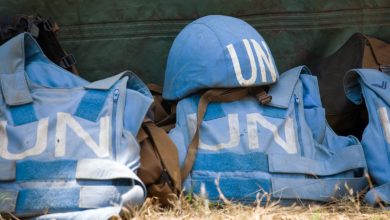

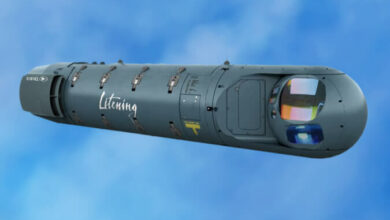

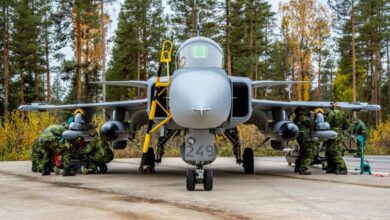

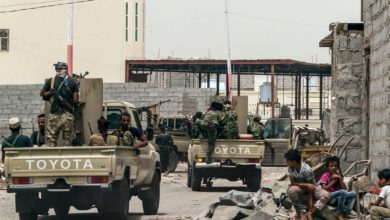

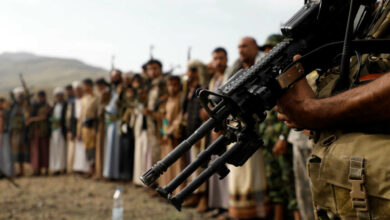

3 Comments